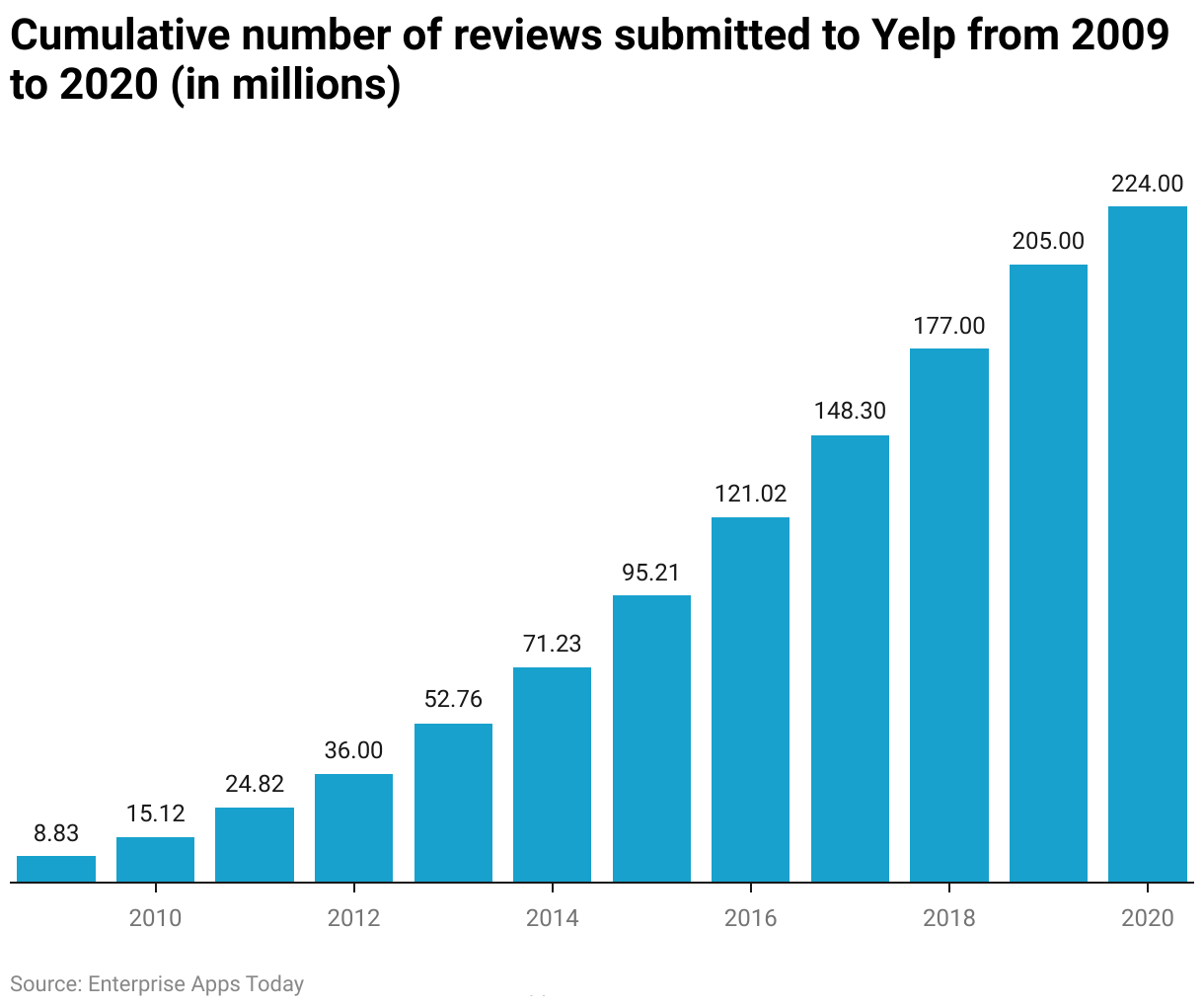Solutions for Solving a Bad Company Reputation
A bad company reputation can lead to negative reviews and bad press, which can adversely affect your business’s bottom line. Here’s why.
How does reputation affect a business?
It can take a company years to build a solid positive reputation, but it only takes an instant to undo all of that hard work. It could be a misstep in customer satisfaction leading to bad reviews, a poorly executed marketing plan, or even false accusations in the public arena. It doesn’t matter what the cause might be, the end result is that damage to your reputation can lead to profit loss, and that’s just the start.
In an economy where 70% to 80% of market value comes from hard-to-assess intangible assets such as brand equity, intellectual capital, and goodwill, organizations are especially vulnerable to anything that damages their reputations.
– Harvard Business Review
To lead a successful business, executives know the importance of engaging employees, deepening customer relationships, and attracting investors. However, the savviest executives also understand that what these stakeholders say about their company is equally important to their bottom line. That’s where your company’s reputation comes into play.
A good reputation can be a strong foundation for your company, while a bad company reputation can negatively affect your business in countless ways.
A company’s reputation is the summation of its past behavior and the trust stakeholders (i.e., consumers, employees, and investors) have for its products and services. It’s also how people view a company through not only reviews and public image but also in relation to society and the values that it holds important.
Reputation has proven to directly impact a company’s success and growth. Companies with a strong reputation are perceived as providing more value to consumers who, in return, are more loyal. This trust separates companies from their competitors and allows them to charge a premium market value for products and services.
A company with a positive reputation also tends to attract better employees. Quality hires want to work for a company where they believe in the corporate mission statement and values. Also, other companies want to do business and collaborate with a company they believe in and that the beneficial relationship will in turn add to their own reputation.
Also, a bad reputation can multiply if you do make a mistake. A track record of a good reputation can help the company recover quicker from mistakes, and people will often give a business the benefit of the doubt and the opportunity to make things right. Although, if they perceive it’s just business as usual and simply the latest in a list of bad events or judgments, it can multiply exponentially, and the customers (both current and potential) will quickly turn their backs on a company.
Companies hurt by a bad reputation
Here are some examples of notable companies that suffered from a bad reputation and how it affected them.
- Fox Entertainment Group: A year after Fox News CEO Roger Ailes resigned amid allegations of sexual misconduct, Fox Entertainment Group, the parent company of Fox News Channel, found themselves embroiled in a scandal revolving around revelations that Bill O’Reilly — at the time, host of one of the network’s most popular shows — had spent up to $13 million settling multiple sexual harassment allegations. This bad press led to O’Reilly’s ouster, the show’s cancellation, and a major black eye for Fox.
- National Football League: Between 2016 and 2017, America’s most popular sport took a hit in ratings, stemming from multiple controversies emerging at the same time. The NFL found itself answering questions about why it took more than two decades to acknowledge the long-term effects of head injuries and the prevalence of Chronic Traumatic Encephalopathy (CTE), while simultaneously facing the growing politicization around the sport and protests during pre-game national anthems. As a result, the NFL saw its viewership dip from more than 18 million viewers in 2015 to 15 million in 2017.
- Miramax: There was a time when Miramax was the darling of the independent film scene. Co-founded by powerful film executive Harvey Weinstein, the company racked up awards with films such as Pulp Fiction and Shakespeare in Love and was instrumental in creating modern independent cinema. But, even though he had left years before when allegations of sexual harassment and rape started to surface surrounding Weinstein, Miramax’s reputation was caught in the crosshairs of public opinion. Even worse was the knowledge that Weinstein’s behavior had been an “insider secret” in Hollywood for years, and celebrities and filmmakers had to defend their own actions in dealing with Miramax and Weinstein. Miramax was sold a number of times and is a shadow of its former glory.
- United Airlines: In 2017, a video of a passenger being forcibly removed from his seat on a United Airlines flight went viral, and outrage erupted across the country. Even then-President Donald Trump critiqued the move. United Airlines CEO Oscar Munoz did not handle the matter well, even going so far as to blame the passenger. As the story unfolded, it was revealed that the passenger was being removed in order to allow employees to fly. Munoz finally walked back his statements and approach, but the damage was done. United saw its stock drop 4% in the days following the incident, which equates to as much as $1 billion of United Airline’s market value lost.
Bad reputations affect businesses big and small
What happens when you have a bad reputation?
Trust is the cornerstone of a company’s reputation. When that trust is broken between a business and its stakeholders, the result can lead to the development of a bad reputation.
Two main things every company wants to avoid are negative reviews and bad press.
Negative Online Reviews
A study by the Harvard Business School suggests an 18% difference in revenue between a 3-star and 5-star rating on online review sites. If you translate that into dollars, a company with $1 million in revenue could lose as much as $180,000 yearly due to a negative reputation.
But do that many people really read and value online reviews? Absolutely. Nine out of ten people read an online review before buying a product. And the number of reviews on sites such as Yelp is increasing exponentially.
According to the BrightLocal Local Consumer Review Survey, 86% of people read online reviews before engaging in business. 91% of those surveyed said positive reviews make them more likely to use a business, while 82% said negative reviews make them less likely to use a business.
Bad Press
Bad press can come from poor customer service, an employee mishap or a company scandal. It can even come from shifting public sentiment that a company has been too slow to address, such as social or environmental issues. But even if it’s “Fake News,” the public perception of bad press can make life very difficult for a company.
A recent CareerBuilder survey showed that 71% of U.S. workers would not apply to a company that was experiencing negative publicity. This means a bad reputation can impact hiring costs and cause employee retention issues. This can create a circular problem where disgruntled employees tarnish your reputation while your bad reputation prevents you from hiring better employees.
How do you fix a bad business reputation?
Some companies have gone to extreme and sometimes humorous lengths to make amends and fix their reputations:
- After a delay left passengers on the tarmac for 11 hours, airline JetBlue issued an apology and offered raw video footage of the situation. They took complete ownership of their failings and promised to adhere to a Passenger Bill of Rights.
- When Apple announced they would give away three months of free music but not pay the artists for their work, musician Taylor Swift fired back at the practice. Apple not only admitted their misstep but publicly apologized to Swift and other artists on social media (where Swift has a massive following and frequently interacts with the public) where their apology was viewed by one particular group of important people… Swift’s fans.
- When fast food restaurant KFC faced a shortage of chicken in the UK, it created an advertisement with a bit of humor and a spin on its logo, rearranging the words into an expletive to comment on its shortcoming.
These tactics worked partly because these companies had garnered a great deal of goodwill through their reputations. However, the best way to get in front of the problem is not to wait for a crisis to arise. Executives who spend most of their energy handling reputation threats once they surface are partaking in crisis management, not reputation management. The latter requires being proactive in building a reputation and assessing existing and potential threats to the company’s reputation.
So what can you do to be more proactive about protecting your company’s reputation?
- Prevent negative reviews and improve review ratings — Customers will often write negative online reviews as a last resort after they’ve exhausted other avenues of venting their grievances and don’t feel like they are being heard. You can drastically cut down on negative reviews by giving them easy and effective ways to voice their opinion directly to customer service before they take to an online review site. Conversely, ask happy customers to leave reviews of your company and make it simple for them to do so with strategic marketing and follow-up.
- Submit press releases about positive company news — If no one else is writing positive content about your company, you can always do it yourself. Topics such as new products, charitable donations or company events can be used as positive press that local media can pick up. You can also maintain a blog with relevant information on your website. Keeping your Wikipedia page positive and up-to-date is also vital to maintaining a strong online reputation.
- Improve SEO to help positive content rank higher — When people search for your company, you want the most positive news and information to be at the top of their results. This is the first thing they see and the basis for a first impression. There are tactics and best practices that can help positive content outrank the negative when it comes to these results. There is also the option of attempting to completely remove certain Google results (or de-indexed) from the search engine, which works very well for fake news or non-true statements.
Conclusion
Sometimes stakeholders need many reasons to invest in your company or buy your products and services, but often, they only need one reason not to engage with your business, and it doesn’t even have to be a good one. Don’t let a bad reputation be the reason your business doesn’t succeed. Even after mistakes are made, online reputation management services can help your brand build back an even better reputation.
By proactively working on your online reputation, you can control the narrative of your company’s vision, culture, and direction while avoiding the pitfalls of a bad company reputation. Instead of letting a bad reputation sink you, foster a good reputation that lifts your company to new heights.
FAQs
Q: How does reputation affect a business?
A: A company’s reputation is the summation of its past behavior, and the trust stakeholders (i.e., consumers, employees, and investors) have for its products and services. Reputation has proven to impact a company’s success and growth directly. A business with a positive reputation attracts better people — not only customers and clients but also employees and business partners.
Q: What happens when you have a bad reputation?
A: The two main things every company wants to avoid are bad press and negative reviews. These lead to a bad reputation and erode trust in a company, the cornerstone of a business’s reputation. Once trust is gone, profits will soon follow.
Q: How do you fix a bad business reputation?
A: The best approach is to avoid any issues and conduct proactive reputation management. This includes improving online reviews, creating positive content such as press releases or blogs, and improving SEO to rank your positive content higher in search results.
About the author
Kent Campbell is the chief strategist for Reputation X, an award-winning reputation management agency based in California. Kent has over 15 years of experience with SEO reputation management, Wikipedia editing, review management, and strategy. Kent has helped celebrities, leaders, executives, and marketing professionals improve how they are seen online. Kent writes about reputation, SEO, Wikipedia, and PR-related topics and is an expert witness for reputation-related legal matters. You can find Kent’s biography here.
–
Tags: Business Reputation Repair.



